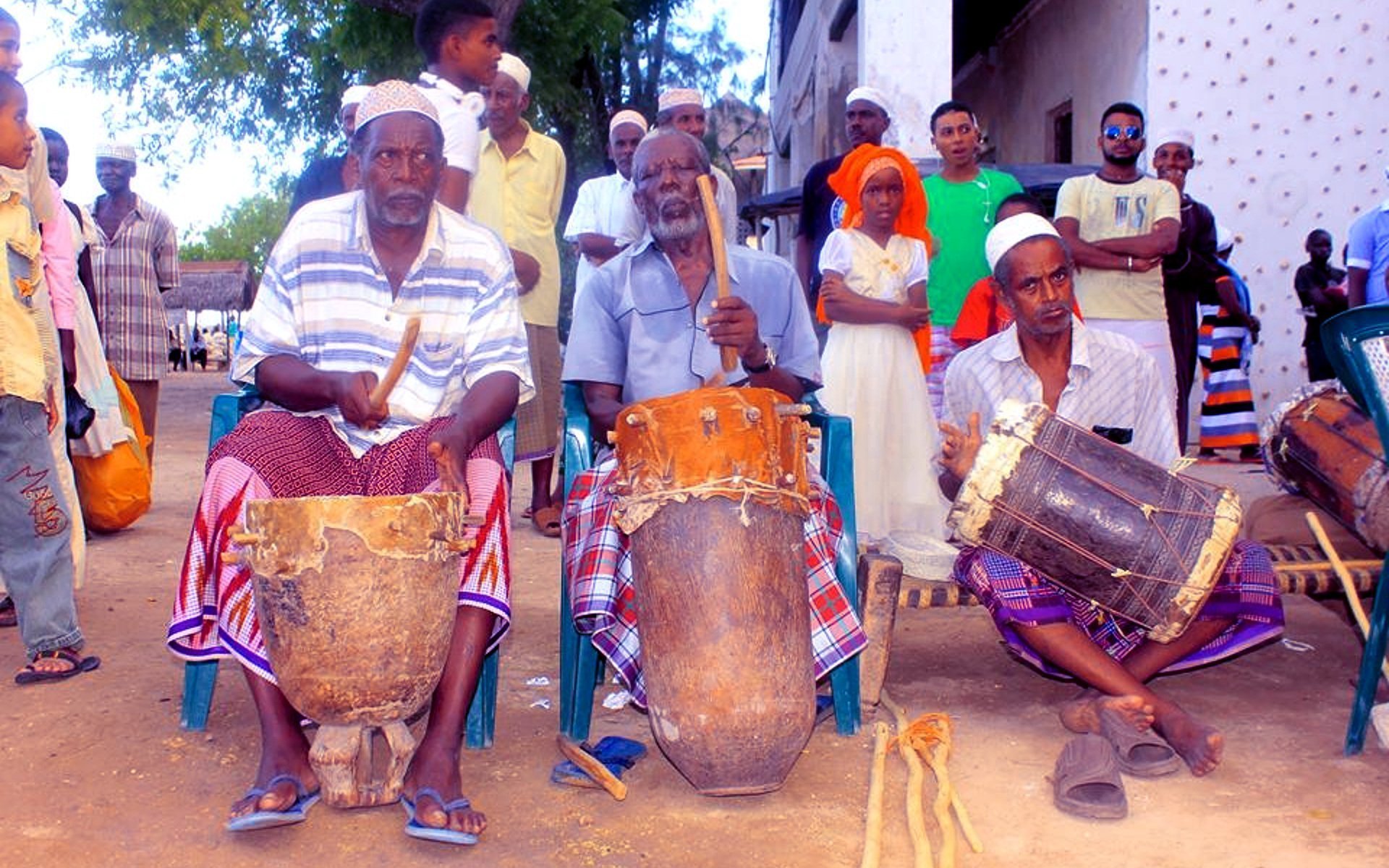
Image: Bajuni men playing the drums
Within the Lamu archipelago lives a marginalized Bantu community with less than 100,000 people that most people do not know exists. The community have remained true to its customs and traditions.
They migrated from Shungwaya(Somalia) due to conflict with the Cushitic communities, who pushed them from their native land to their current location. This tribe arose from intermarriages between Arabs and Africans many centuries ago, and with time, the Arabs influenced their cultural and religious beliefs.
Language
They speak Kitikuu, a dialect of the Swahili language.
Social and Political structures
Being an Islamic community, the Bajun practise and conduct themselves according to Islamic laws. Traditionally, however, they were governed by kings. A Muslim judge(kadhi) handles the criminal and civil disputes of the community.
Their weddings bring families together with music and dance, lasting for three days.
Economic activities
Men are involved in marine trade, fishing, building boats and making fishing nets. They depend highly on the sea due to their closeness to the Indian ocean. On the other hand, women take care of the home and weave baskets for sale. Others are also involved in farming.
Food
Their main foods are coconut, fish, and rice.
Clothing
Men wear a Swahili spread known as kikoy covering the lower torso and rubber thongs on their feet. The women wear discreet black veils with only their eyes visible to the world.
Traditionally, a woman would wear a ring through the centre of her nose, a gold disk in one pierced nostril and several earrings through the tops of her ears. Today, these are considered unfashionable.
Religion
They are Shafite Muslims. Their lives revolve around the mosque and daily prayer. In the course of saying five prayers a day, they also wash at least five times.
Additional Resources
Heritage of the Bajuni Community
Join the Lughayangu Community!

